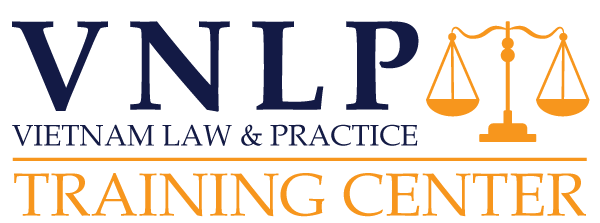Cryptocurrencies and galloping craze in 2017
The topic of trading virtual currencies that many people often know under the form of Bitcoin trading, is certainly not a strange story for information savvy people and individual investors. Especially, the world used to witness the “crazy” price increase of virtual currencies which particularly is Bitcoin in 2016, 2017. The dream of getting rich from this virtual currency caused Bitcoin price to skyrocket, increase more than 20,000 USD per Bitcoin, an increase of approximately 20 times over the same period in the previous year.
Presently, trading virtual currencies has been a cause of great concern in Vietnam, although previously for Bitcoin and other virtual currencies, the State Bank of Vietnam (SBV) has repeatedly affirmed that Bitcoin (and similar virtual currencies) is not a currency and is not a legal means of payment in Vietnam. However, the current law of Vietnam does not have a clear view on the ownership, trading, and use of virtual money (bitcoin and similar virtual currencies) as an asset, the common view of the State just stopped at the recommended level on warning about the risks in bitcoin holding and trading, which are unstable and not protected by the law.
Withdrawing from popular views from countries about cryptocurrencies, and comparing them with the current Vietnamese laws, in this article, the writer would like to share a multi-dimensional perspective on the legal status of the impulse. Around the so-called “virtual currency”, the writer said that virtual money should be considered from three angles: (1) currency, means of payment; (2) property, in fact, more specifically, virtual property; and (3) types of goods to be traded.
Regulatory policies of countries on virtual currencies
Up to now, there has not been a clear and unified definition, treatment or legal corridor and management for virtual currencies worldwide, as well as in Vietnam. As reported by the Payment Department – State Bank, there are 4 different management levels of countries for virtual currencies being implemented by countries in the meantime and most of them are quite cautious with virtual currencies, in particular:
Firstly, it is strictly prohibited on a large scale like some countries such as Bangladesh, Bolivia, Ecuador … in these countries, the government prohibits organizations / individuals from being allowed to trade, use Bitcoin and other virtual currencies on national territory. [1]
Secondly, it is only banned in the field of finance and banking, in particular, the People’s Bank of China denies the validity of Bitcoin by banning financial institutions from using or trading Bitcoin or virtual currencies. other. Furthemore, China banned the initial public offering of virtual currencies (ICOs) and considered it an illegal capital raising activity. All four agencies, including the Central Bank of China, the China Securities Commission, the China Banking Supervision Commission and the China Insurance Supervision Commission, have made a joint statement on this issue. [2]
Thirdly, not banned but not admitted. Most countries that have made statements regarding Bitcoin and / or virtual currencies, indirectly or directly do not recognize Bitcoin and other virtual currencies as payment instruments or legal currencies of their countries; issue warnings about the risks of virtual currencies and recommend that people do not participate in the trading of virtual currencies and are not protected by the State against risks and losses if they occur. At this level, many countries do not prohibit the exchange and sale of Bitcoin as well as virtual currencies and treat it as an asset and tax on Bitcoin purchases (such as the United Kingdom, Canada, Norway, Switzerland). Sweden, Finland …). Furthemore, a few countries allow the établishment and development of Bitcoin exchanges and virtual currencies through operating licenses such as Japan, Singapore or New York State (United States).
Finally, accept virtual currency as a means of payment. More recently, the Russian Federation and Thailand, who have considered Bitcoin trading, trading and using Bitcoin illegal, have turned to transactions but have taken a risk warning. Specifically, the Japan Financial Services Authority (JFSA) has amended the Law on Payment Services to consider Bitcoin as a legal, pre-paid payment method on Japanese territory since April 1, 2017. and is managed by JFSA.
Using virtual money as a means of payment?
Not only when the issue of virtual currencies becomes hotter, but right from the beginning of 2014, the SBV issued an official press release affirmed: “Bitcoin (and similar virtual currencies) is not a mean of currency and must not be a legal means of payment in Vietnam ”. Owning, buying, selling and using bitcoin as a type of asset carries a lot of risks to the people and is not protected by the law. Therefore, the SBV recommends that organizations and individuals should not invest, hold or conduct transactions related to bitcoin and other similar virtual currencies”. However, it is not uncommon for some organizations, businesses, and individuals to accept bitcoin as a form of payments in civil transactions.
In Vietnam, authorities issued Decree 80/2016 / ND-CP amending and supplementing a number of articles of Decree No. 101/2012 / ND-CP on non-cash payments, determining money. Virtual is an illegal means of payment in Vietnam and the issuance and use of virtual currency as a currency, means of payment will be handled in violation of Decree 96/2014 / ND-CP of the Government. . Regarding sanctions against violations, according to Clause 6, Article 27 of Decree No. 96/2014 / ND-CP on administrative sanctions in the field of currency and banking activities, acts of issuing, supplying and using Using illegal payment instruments (including bitcoin and other similar virtual currencies) will be sanctioned for administrative violations at a fine of between VND 150 million and VND 200 million. At the same time, from January 1, 2018, acts of issuing, supplying and using illegal payment instruments may be subject to criminal prosecution under Point h, Clause 1, Article 206 of the Code. Criminal 2015 (amended and supplemented in 2017).
Thus, according to the provisions of the laws, virtual money, for example, bitcoin, is not a legal means of payment in Vietnam; The issuance, supply, use of bitcoin and other similar virtual currencies as a means of payment is prohibited in Vietnam.
Is virtual money an asset?
Although the use of virtual money as a payment instrument has been strictly prohibited, it seems that the investment and trading of virtual currencies still tend to increase rapidly due to the sudden increase of virtual currency in the world, Virtual currency exchanges are very active with complicated developments. However, it should be noted that at present, the law of Vietnam has no regulations on holding virtual money or virtual assets as a type of property.
At the Article 105 of the 2015 Civil Code states: “Property is objects, money, valuable papers and property rights. Property includes real estate and movable property. Real estate and movable property may be existing properties and properties formed in the future”. Thus, the 2015 Civil Code only lists objects that can be considered as assets without giving specific concepts of assets, nor providing general criteria to serve as a basis for determining which object. Is that (such as virtual money, virtual assets) an asset? The types of assets listed in Article 105 as a result of the process of developing civil exchanges must reflect their economic significance in order to be recognized and reflected in the provisions of law. According to this criterion, virtual money can become a new type of asset recognized by law because its economic significance is obvious in civil exchange, reflected in practice that it has been the object of related business transactions.
This concept is approached through theoretical thinking about property rights. Property rights are specifically defined in Article 115 of the 2015 Civil Code: “Property rights are a monetary right, including property rights to intellectual property rights, land use rights and other property rights”. Thanks to the monetary value of property rights, we can access and create the ability to fully feel the rights of the owner of virtual money, a type of virtual property, that is the right to own, use and disposition. This shows that virtual money is “very close” to the property in general, so can virtual money be considered as a type of property or not?
According to the writer, recognizing virtual currencies as assets under the Civil Code will provide a solid legal basis to identify transactions related to virtual currencies as assets in civil transactions to be able to ownership setting. At the same time, it creates a basis for dealing with offenses against virtual currencies as criminal cases for theft and fraud are growing. In terms of property under civil law, virtual money is an asset in nature, but formed in the form of “virtual”. Therefore, the current issue according to the State Bank of Vietnam, the Ministry of Justice and the authorities need to clearly determine whether or not the asset is a virtual currency, so that it can have a view to dealing with virtual currencies. In essence, this is a review that recognizes the legitimacy of virtual currency as an asset. When recognizing virtual money as a type of asset, is it legal to hold or buy this virtual asset?
Virtual money is like a commodity or a business service
Currently, the existence of a number of exchanges through which, sellers and buyers trade bitcoin or another virtual currency are very popular such as remitano, santienao.com, vicuta.com etc. The fact shows that these websites have a large amount of virtual currency trading but no one organization is legally established and operating in Vietnam. Therefore, there is an opinion that experts say that the stricter the prohibition of transactions made through non-Vietnamese organizations will push these transactions instead of public activities into the system. underground system, then it is even more difficult for state agencies to manage and collect taxes. Therefore, there is an opinion that whether or not virtual currencies should be accepted as a commodity, that is, does not allow payments to buy goods, but it is acceptable for those with real buying and selling needs. Current transactions, exchanged with each other.
According to the writer, accepting cryptocurrencies as a commodity should also be cautious, initially focusing on building regulations and management sanctions for the most popular and influential type, such as Bitcoin. In order to do this, Vietnam needs to develop regulations to allow virtual currency exchanges to be established with the requirement that the company must register, must have own capital, and prove its financial capacity, from That will manage all transactions through these exchanges.
[1] http://bitcoinbans.com/
[2] https://www.bloomberg.com/news/articles/2013-12-05/china-s-pboc-bans-financial-companies-from-bitcoin-transactions


